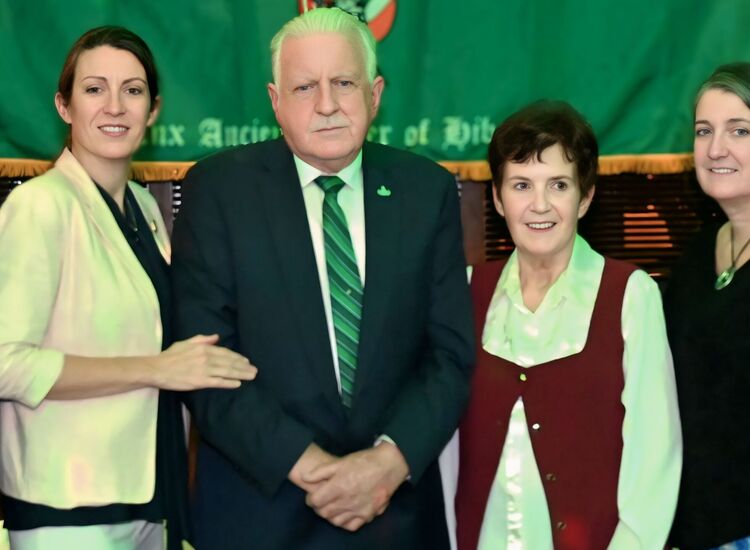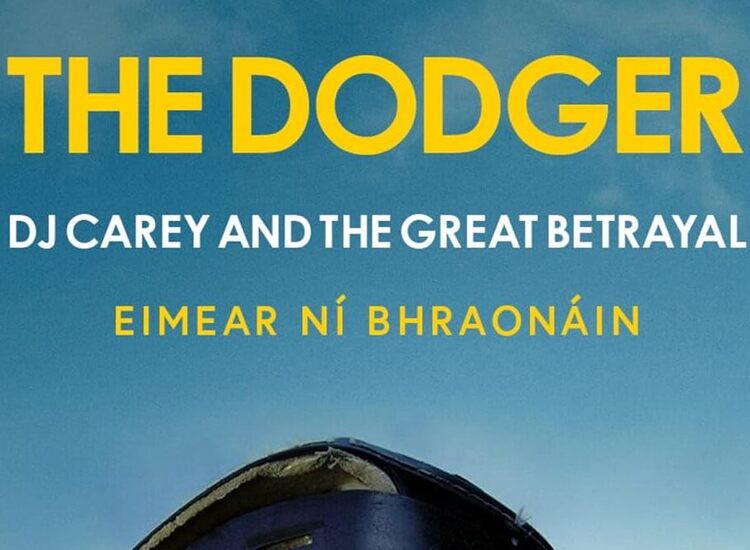Between the Lines / By Peter McDermott
President de Gaulle on a visit to West Germany in May 1962.
[GERMAN FEDERAL ARCHIVES]
A lot of newsprint was used to convey analysis in the aftermath of the Charlie Hebdo massacre, but one of the best pieces, for me, didn’t require any, because it was published by the online magazine Salon. However, I do also suggest below that Andrew O’Hehir failed to press home his argument.
He wrote: “What happened in Paris this week was a political act. Terrorism is always a political act, or nearly always. Its goals lie in the here-and-now or at least the near future, not in the hereafter.”
O’Hehir, who is Salon’s film critic, continued: “I don’t believe this attack was driven by religious faith on any fundamental level, and to define it as an assault on freedom of speech is far too narrow. Its true target was multicultural democracy in general and the specific version, both more fragile and more successful, found in France in particular.
“If anything, this attack testifies to the power the French model still holds, even in an era of sustained political crisis, social conflict and economic stagnation,” he continued in his Jan. 10 essay. “Amid its evident difficulties, France remains a peaceful, prosperous and culturally vibrant nation with a relatively well integrated and increasingly secular Muslim minority. (As has been widely reported, one of the police officers killed on Wednesday was a Muslim.) That model of democracy — or perhaps we should say that possibility — is exactly what came under attack from the Charlie Hebdo gunmen. Their aim was to pry open that model at a tender spot, expose its contradictions and undermine its stability.”
O’Hehir summarized what for the gunmen might have been a good outcome for the Jan. 7 attack – increased hostility towards French Muslims, which would fuel alienation and the growth of radicalism, and a boost in support for the anti-immigrant National Front, led by Marine Le Pen.
All of this was an interesting overview – and also a refreshing contrast to so much of the punditry seen over the past two weeks. It seems that with every calamitous event – a news story that will still be talked about in 100 years – there’s no shortage of commentators viewing it through the prism of their own obsessions, whether right, left, national, religious, or whatever.
Sometimes this can be tediously predictable. For instance, Glenn Greenwald, a former Salon writer who broke the NSA/Snowden story in the Guardian in 2013, published a series of anti-Semitic cartoons along with his piece in his online magazine, the Intercept.
Greenwald is an absolutist when it comes to First Amendment rights and that’s why he has defended the Citizens United decision on campaign finance handed down by the right-wing majority on the U.S. Supreme Court in 2009. His politics aren’t easy to classify; but, it seems, he wants those elements of the fringe left that he likes to ally with sections of the libertarian right, united by their common goal of sticking it to the man.
His Intercept piece was just a more intelligent, if extreme, articulation of an argument seen a lot in recent days: our politicians and our Western societies are hypocritical when it comes to freedom of speech.
Lure of absolutism
I thought that O’Hehir was perhaps addressing that type of response with this: “Debates about the role of religion in modern society, and the outer limits of free speech, are undeniably seductive. I am liable to get drawn into them at any moment. But when we allow our discussion about a political act, which took place in the familiar context of a Western liberal democracy and whose origins are not especially mysterious, to get sidetracked into grand pronouncements about abstract moral and philosophical categories, we are deliberately clouding the issue and not talking about the things we should be talking about.”
Except that at this juncture, O’Hehir allowed himself a very wooly discussion about freedom of speech at the expense of explaining more clearly why Jan. 7 was an attack on Western democracy, AKA liberal democracy, and more specifically upon the French model he admires. He might have explored what it is that makes French multicultural democracy work and have the, as he qualified it, the “possibility” to evolve and develop and continue to assimilate people who are different.
O’Hehir’s formulation that the Charlie Hebdo attack wasn’t just about freedom of speech is absolutely correct. Indeed, one could argue that it wasn’t about freedom of speech at all, insofar as most radical Islamist violence is not concerned with that issue and we could conceive all sorts of murderous attacks in Paris where it wouldn’t be.
What if the gunmen had slaughtered 10 members of parliament who favored France’s controversial “headscarf ban” or 20 because of the nation’s interventionist foreign policy?
We would hope after such an event that people would hold up signs all over the world saying: “I am the French Republic.”
But one suspects that, for some, it is the “outer limits of free speech” that what’s sexy here, along with the special lure of absolutism.
The First Amendment and Second Amendment absolutists measure freedom in their own ways – ways that seem very limited and not too logical. For instance, it’s possible for a country to cherish and uphold advanced notions of freedom of speech and at the same time treat minorities abominably; and it’s never been much of a problem for dictatorial and authoritarian regimes to tolerate easy access to weaponry in civil society.
The people who poured into Paris’ streets 10 days ago were not just affirming the right to freedom of speech but also the right for a person to do his or her job in a free society without fear of political assassination. And presumably it was a statement in favor of Western democracy – which believes in the open society, in the rule of law, in government by consent, free and fair elections, the right to hold signs in protest and the right to due process.
Do the wealthy get a better shake from our institutions. Yes, they definitely do. But the system works because we adhere and respect those same institutions, even if we want far-reaching change. We can possibly agree that most of the politicians we elect are hypocritical some of the time and some are most of the time. Are we all guilty of hypocrisy in our political attitudes? Not all, but maybe most of us are some of the time.
The absolutists can have a skewed view of our society – our societies – that leaves out the human factor. The fact is that we elect people to parliaments and they restrict and liberalize as they see fit. There’s nothing to stop Christians and Muslims making common cause around a set of blasphemy laws. Would that make our society less free if they were passed? Certainly. But, it would be still free enough for secularists to campaign for their repeal. Just as believers can hope that at some point France can relax its secularity a bit, and not be so hung up about what people wear and nor so uptight about religious symbols on state property. Or, perhaps, it’s the believers who will learn to adapt. Likewise, Greenwald and Citizens United backers will perhaps argue that those who seek to represent the less well-off should raise their fundraising game so as to compete on a level playing field with the rich and powerful.
Battle for Algiers
When discussing and defending French democracy, a little history might be helpful.
It was interesting in this debate over the past two weeks how Algeria, the ancestral homeland of the Charlie Hebdo gunmen, got mentioned by those who see the Muslim as a victim primarily, and how it was avoided by those who see the Muslim as a problem.
France decamped from Vietnam in 1954, and then disengaged without much fuss from Morocco and Tunisia, but the political class, from moderate left to far right, decided to put up a fight in Algeria, not least because it was home to a million people of European heritage. Paris had, since the mid-19th century, considered the city of Algiers and the territory that hugged the Mediterranean coast, in contrast to the arid interior, to be an integral part of the French Union.
But “l’Algérie française” was becoming ungovernable. Fierce and brutal repression of a pro-independence insurgency, including the use of torture on a vast scale, pushed much of the Arab population of 9 million into the arms of the National Liberation Front, or FLN.
A growing political crisis in domestic France brought the return of the leader and great symbol of wartime national resistance, General Charles de Gaulle. After a dozen years of self-imposed political exile, de Gaulle proposed the Fifth Republic. The most notable feature of the Constitution passed on Sept. 28, 1958, was its president possessing strong executive powers. Overnight, France went from a parliamentary system far more chaotic than Ireland’s or Britain’s to having a head of state with rather more constitutional power than that granted to the U.S. president.
De Gaulle assumed the presidency in January 1959. He had said he would back l’Algérie française, but soon came to see it was unsustainable. He broke his election promise; he had a broader mandate to govern France.
The Fifth Republic was less democratic and less free, in more than a theoretical sense, than the Fourth Republic, but it allowed for the decolonization of Algeria and provided the stability that enabled the later growth of the multicultural society that O’Hehir praises.
The right-wing terrorist OAS, which believed de Gaulle had betrayed French Algeria, devised several plots to kill him, but it was an allied group that came closest to succeeding in Paris on the night of Aug. 22, 1962. (Madame de Gaulle was in the car with the president when it was hit by machine-gun fire, and that lack of chivalry was one reason he refused to commute the death sentence of the man who’d planned the attack).
The OAS (in English, the Secret Army Organization) was said, too, to have helped instigate two police massacres of pro-independence Algerian demonstrators in Paris, in October 1961 and February 1962. In the latter incident, scores of victims drowned in the Seine.
Soon, the European “pied noir” population packed its bags for France; meanwhile, the FLN, in its moment of victory, allowed bloodlust free rein.
In his recent excellent biography of Francois Mitterand, the Socialist president of France from 1981 to 1995, Philip Short writes in a footnote: “During the French presidential elections in 2002, 2007 and 2012, where immigration, especially from North Africa, was a major campaign issue, it was widely acknowledged that France’s difficulties in integrating its Arab population, even those born in France of the second and third generation, were rooted in the hatreds and incomprehension sown 50 years earlier during the Algerian war.”
The “anti-imperialist” left preferred to put this front and center in its narrative of Jan. 7, regarding the tragedy as the product of a colonial wound. There’s a strange symmetry here with the position of conservatives who conversely ignore that painful history as a factor and would rather focus on Islam and the “clash of civilizations” as the issue. The right, alas, is somehow blind to the overwhelming evidence that immigrants, including Muslims, adapt over time to the mores of their new countries.
Four percent of the French people identify as Muslim, and lot of them aren’t particularly religious, no more than most of the 51 percent that say they are Roman Catholic.
Overall, the government reports that 8-10 percent are from a Muslim background, which immediately gives us some sense of the complicated picture here.
And this is why Andrew O’Hehir is on the mark here in celebrating France’s multicultural experiment – not merely as it exists now, but the “possibility” of what it could become, in the way that Americans can strive for a “more perfect union.”









